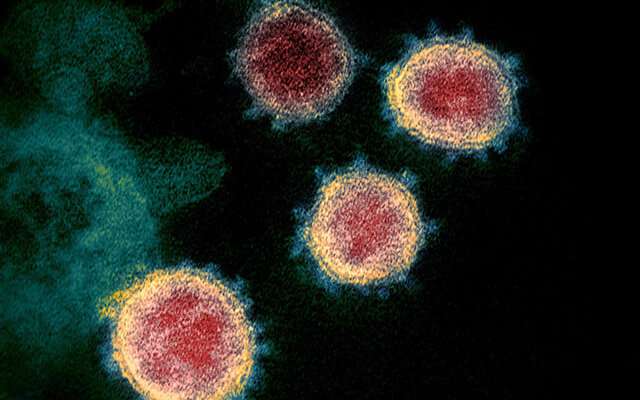Supercomputer simulations present potential active substances against coronavirus

Several drugs approved for treating hepatitis C viral infection were identified as potential candidates against COVID-19, a new disease caused by the SARS-CoV-2 coronavirus. This is the result of research based on extensive calculations using the MOGON II supercomputer at Johannes Gutenberg University Mainz (JGU). One of the most powerful computers in the world, MOGON II is operated by JGU and the Helmholtz Institute Mainz.
As the JGU researchers explained in their paper recently published at the World Health Organization (WHO) website, they simulated the way that about 42,000 substances listed in open databases bind to certain proteins of SARS-CoV-2 and thereby inhibit the penetration of the virus into the human body or its multiplication.
"This computer simulation method is known as molecular docking, and it has been recognized and used for years. It is much faster and less expensive than lab experiments," said Professor Thomas Efferth of the JGU Institute of Pharmacy and Biomedical Sciences, lead author of the study. "As far as we know, we were the first to have used molecular docking with SARS-CoV-2. And it is fantastic news that we have found a number of approved hepatitis C drugs as promising candidates for treatment."
Using the MOGON II supercomputer, the researchers made more than 30 billion single calculations within two months and found that compounds from the four hepatitis C drugs simeprevir, paritaprevir, grazoprevir and velpatasvir have a high affinity to bind SARS-CoV-2 very strongly and may therefore be able to prevent infection.
"This is also supported by the fact that both SARS-CoV-2 and the hepatitis C virus are a virus of the same type, a so-called single-stranded RNA virus," explained Efferth. According to the researchers, a natural substance from the Japanese honeysuckle (Lonicera japonica), which has been used in Asia against other diseases for some time now, might be another strong candidate against SARS-CoV-2. "Our research results now need to be checked in laboratory experiments and clinical studies," said Efferth, adding that molecular docking had already been used successfully in the search for active substances against the coronaviruses MERS-CoV and SARS-CoV.
More information: Onat Kadioglu et al, Identification of novel compounds against three targets of SARS CoV-2 coronavirus by combined virtual screening and supervised machine learning, World Health Organization (2020). DOI: 10.2471/BLT.20.255943
Provided by Universitaet Mainz





















